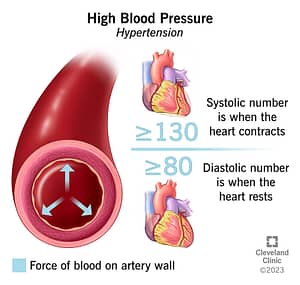
Discover the Surprising Link Between Vaping and Weight Loss
Whether you are considering switching to vaping or are already a vaper, it is crucial to understand the advantages and disadvantages of this practice. While it can be an easy way to get a high and a useful tool for weight loss, there are also potential side effects to consider.
Potential Side Effects of Vaping
Although vaping is generally considered a safer alternative to smoking, it can still have side effects. While it is not always possible to predict the exact effects, understanding how nicotine affects the body can help determine if vaping is a suitable option for weight loss.
Nicotine is a potent appetite suppressant that can increase metabolic rate, leading to more calories burned during physical activity. It also acts as a stimulant, making you feel more alert and improving memory and attention.
However, nicotine can also be addictive, and e-cigarettes contain not only nicotine but also other harmful chemicals. Vaping has been linked to lung problems, asthma, and other health issues. If you have any chronic health conditions, it is essential to consult your doctor before using vaping as a weight loss method.
Some vapers may experience unpleasant sensations while using e-cigarettes. These are not necessarily caused by nicotine but may be due to a specific e-liquid flavor. If you notice any side effects, you may want to try a different e-liquid with a lower nicotine level or a new flavor.
Another potential side effect is a dry mouth, which can be a sign of dehydration. If you have a chronic dry mouth, it is crucial to drink plenty of water and consult your doctor if the symptoms persist.
Vaping can also irritate the lungs, as the vapor contains tiny particles that can travel deep into the lungs and cause inflammation. Additionally, nicotine can increase blood pressure and the risk of heart disease and lung cancer.
Increased Metabolism
Vaping can potentially increase metabolism and aid in weight loss. However, it is not a reliable method on its own, and it is essential to combine it with exercise and a healthy diet for optimal results.
E-liquids contain chemicals, including nicotine, that can boost metabolism. They also come in various flavors, and you can choose the nicotine level that suits you best.
Choosing the right e-liquid is crucial as it can determine whether you experience nicotine withdrawal symptoms. You can also opt for nicotine-free e-liquids that contain other ingredients known to suppress nicotine cravings.
In addition to vaping, making dietary changes and getting enough sleep can also help increase metabolism. Regular exercise has been shown to have a significant impact on metabolic rate. The ketogenic diet, which is low in carbs and moderate in protein, forces the body to burn fat for energy. Fasting is another option that can boost metabolism and is often used for religious purposes or short-term health goals.
The nicotine in e-liquids can also suppress appetite, making it easier to avoid overeating. Additionally, e-liquids that contain THC may also aid in weight loss, as CBD has been linked to increased metabolism and fat burning. However, it is not recommended to use vaping as a weight loss method, as it can lead to nicotine dependence and potentially harmful side effects such as insomnia and depression.
Vaping can be a useful tool for those looking to quit smoking, as it can reduce cravings and increase metabolism. However, it is not a reliable long-term weight loss solution, and it is crucial to incorporate exercise and healthy eating habits into your routine.
Burning Fat
Vaping can potentially aid in weight loss by boosting metabolism and distracting from high-calorie foods. However, it is not a guaranteed method, and it is essential to maintain a healthy lifestyle to achieve and maintain weight loss.
One way vaping can help with weight loss is by suppressing appetite. Nicotine, the main component in e-liquids, has been shown to reduce cravings for fatty and sugary foods. It also increases the body’s resting metabolic rate, leading to more calories burned throughout the day.
Moreover, vaping can help with digestion and reduce the desire to overeat. It also has a different effect on blood sugar levels compared to smoking, as it does not produce the same harmful substances. However, it is crucial to note that vaping is not suitable for everyone, and it is essential to consult a doctor before using it, especially if you have lung problems. Additionally, e-cigarettes have been linked to lung damage, making it an unsafe option for weight loss. It is not a sustainable long-term solution and can potentially lead to smoking.
While vaping may be a useful tool for quitting smoking, it is not a reliable weight loss method. It is essential to incorporate exercise and healthy eating habits into your routine for long-term weight loss success.
E-Liquids Used in Vapes
A significant number of adults who use e-cigarettes have reported using them for weight loss purposes. E-liquids, which are consumed alongside these devices, contain nicotine, which has been shown to suppress appetite, similar to traditional cigarettes. However, this method is not a guaranteed way to lose weight.
There is no conclusive evidence to support the claim that vaping leads to weight loss. This is because e-liquids contain a minimal number of calories, with approximately five calories per milliliter, based on laboratory tests of the ingredients’ energy output.
Moreover, studies have shown conflicting results regarding the effects of e-liquid flavors on appetite. Some suggest that they can increase food intake, while others claim they can suppress hunger. It is crucial to seek professional medical advice to address any concerns regarding e-liquid flavors.
Some individuals have reported that switching to vaping has helped them quit smoking, which can also aid in maintaining a healthy weight.
However, studies have shown that vaping can have adverse effects on the brains of teenagers and may increase the risk of eating disorders in college-aged adults. Additionally, it is essential to note that e-liquids come in varying nicotine levels, and some do not contain nicotine at all.
If you are considering using vaping for weight loss, it is crucial to consult a healthcare professional. E-liquids are made up of a base of vegetable glycerin (VG), propylene glycol (PG), and flavorings, with VG and PG being the primary sources of calories. However, some e-liquids do not contain nicotine.
Effects of Flavors on Appetite
Vaping can potentially help control appetite. Studies have shown that it can reduce cravings for high-calorie foods.
This is because nicotine, the main component in e-liquids, suppresses appetite by binding to a3b4 receptors in the brain, leading to reduced hunger.
In addition, nicotine can increase the body’s resting metabolic rate, resulting in more calories burned throughout the day. Using e-cigarettes can help reduce your daily calorie intake, leading to weight loss.
Moreover, vaping has been shown to suppress cravings for sweets. Flavored e-liquids can help vapers enjoy their favorite foods without adding extra calories to their diet.
It is essential to note that vaping does not have the same effect on blood sugar levels as smoking, as it does not produce harmful substances like tobacco. This makes it a safer alternative to smoking. However, it is crucial to consult a doctor before using vaping, especially if you have lung problems. Additionally, e-cigarettes have been linked to lung damage, making it an unsafe option for weight loss. It is not a sustainable long-term solution and can potentially lead to smoking.
Vaping can be a useful tool for those looking to quit smoking, as it can reduce cravings and increase metabolism. However, it is not a reliable long-term weight loss solution, and it is crucial to incorporate exercise and healthy eating habits into your routine.
